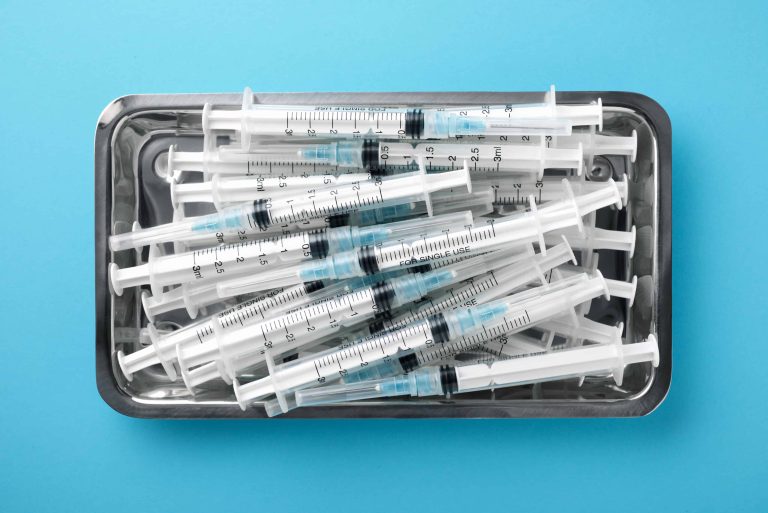A New York Senate committee passed a bill authorizing the establishment of a state-sanctioned overdose prevention center (or OPC, also referred to as supervised consumption sites or safer consumption spaces). Safer consumption spaces are supervised places to use illegal drugs under medical supervision. The legislation, Senate Bill S399A (the enactment of the Safer Consumption Services Act, or SCSA), would require the New York State Department of Health to authorize at least one supervised consumption site. While OPCs already exist, this bill will make it easier for harm reduction workers to do their jobs and solidify the work that is already happening.
New York City opened the first city-authorized safe consumption sites in late 2021. The advancing legislation will provide a sterile environment for people to use pre-obtained substances (they won’t provide you with any), giving them a safe alternative to bathrooms or other sites frequented. In addition, the prevention center will also keep medical workers on site to ensure folks are administering the drug more safely. Such sites also offer protection that’s not available when using the drug in a non-monitored establishment, as medical workers will be there to treat any overdoses properly. Naloxone to reverse opioid overdoses will be at the safer consumption site. On-site workers will also educate participants on safer consumption practices and information on treatment. While the site can collect aggregate data on its participants and their experiences, participants and the staff at the safer consumption site will have immunity from prosecution for the sanctioned activities.
For some history, in 2015, IDUHA (the Injection Drug Users Health Alliance) released a memo essentially directing Harm Reduction agencies to act on the assumption that people using their bathrooms would likely be using opioids and therefore be at risk of overdose, a New York City harm reduction worker explains to High Times. However, most agencies have a policy wherein anyone using the bathroom gets a knock on the door every few minutes, and staff can access the bathroom and provide overdose support (including naloxone and rescue breaths and contacting EMS) when the occupant is unresponsive. “On average, my team responds to one overdose a month in our bathroom, with several utilizations a day not resulting in overdose. We have to wait for someone to stop breathing and stop responding to a knock at the door, at which point they may have been not breathing for several minutes,” our source says. “The SCSA is an important bill because it acknowledges work that is already happening—harm reduction workers and people who use drugs and their peers are already on the front lines of the overdose crisis.”
The Senate Health Committee passed the harm reduction legislation from Sen. Gustavo Rivera (D) in a voice vote on Tuesday, and it will now go to the Finance Committee for consideration. The Assembly companion version of SCSA, sponsored by Assemblymember Linda Rosenthal (D), cleared the chamber’s Health Committee in March.
“Harm reduction works. Harm reduction is a modality—a way to approach dealing with an issue which assumes, first, that a person who uses drugs is a person, and that they have to be met where they are,” Rivera said at the hearing. “Fact number two, criminalization has not worked.”
“Over decades of the drug war, it is pretty clear that we have lost said war,” he continues. “The notion that we could arrest our way out of addiction—that we could arrest our way out of overdoses and deaths—has been proven to be a lie based on all of these years of experience. Criminalization does not work.”
It marks a milestone in harm reduction history. “Today, the Senate recognized the dire situation New York is in because of the overdose crisis and failed War on Drugs era policies,” the advocacy group VOCAL-NY said in a press release on Tuesday. “New York is one step closer to seeing Overdose Prevention Centers authorized across the state,” the group’s Users Union leaders elaborated. “The legislature needs to keep the momentum and pass the Safe Consumption Services Act out of both houses by the end of session.”
However, the New York City harm reduction worker High Times spoke with explains that this bill may be simply securing what already exists, thanks to the hard work of passionate harm reduction groups. “Every OPC will be placed in already existing harm reduction agencies. In a very real way, the bill will not change much. Last week I went to Albany with a cohort of workers and participants at VOCAL-NY, Housing Works, and OnPoint to speak to legislators who had not signed on yet. When we met with [New York State Senator] Tim Kennedy’s legislative director, I told her: we are already doing this, but because we can’t acknowledge it, we have to keep the bathroom door closed. Let us leave the door open—that’s all we’re asking.”
